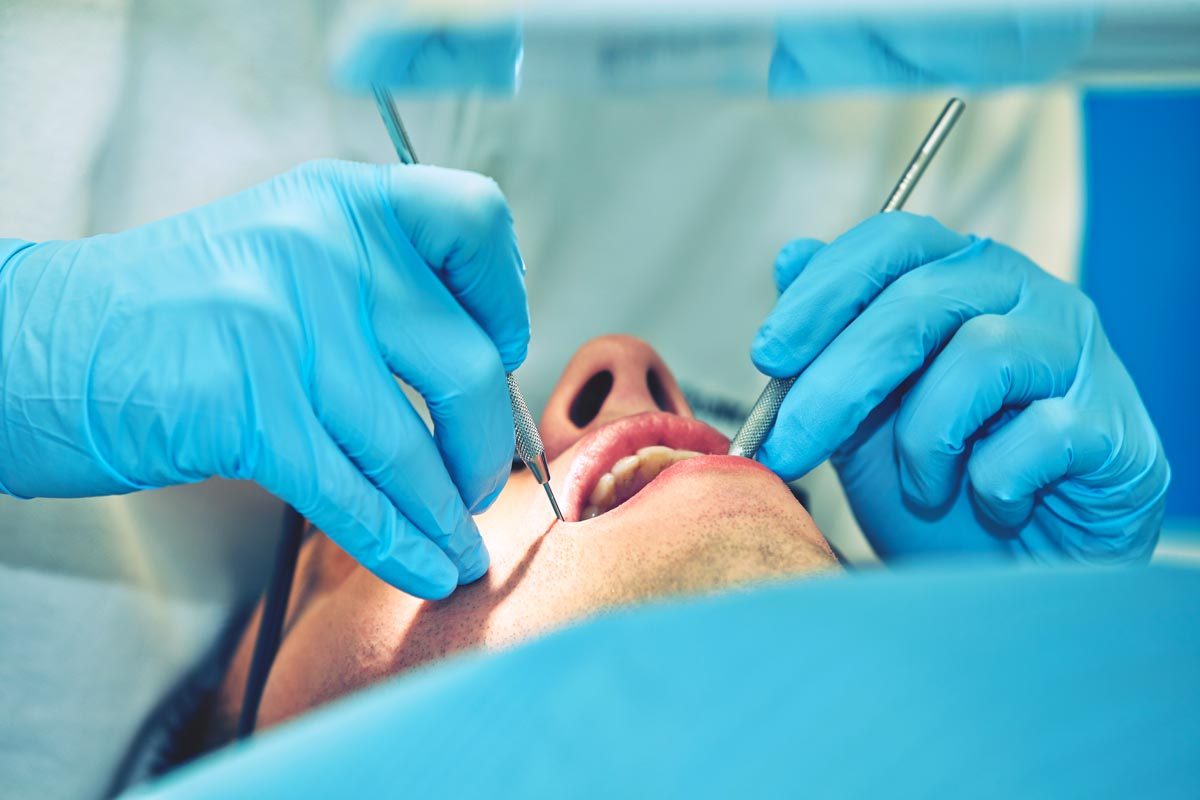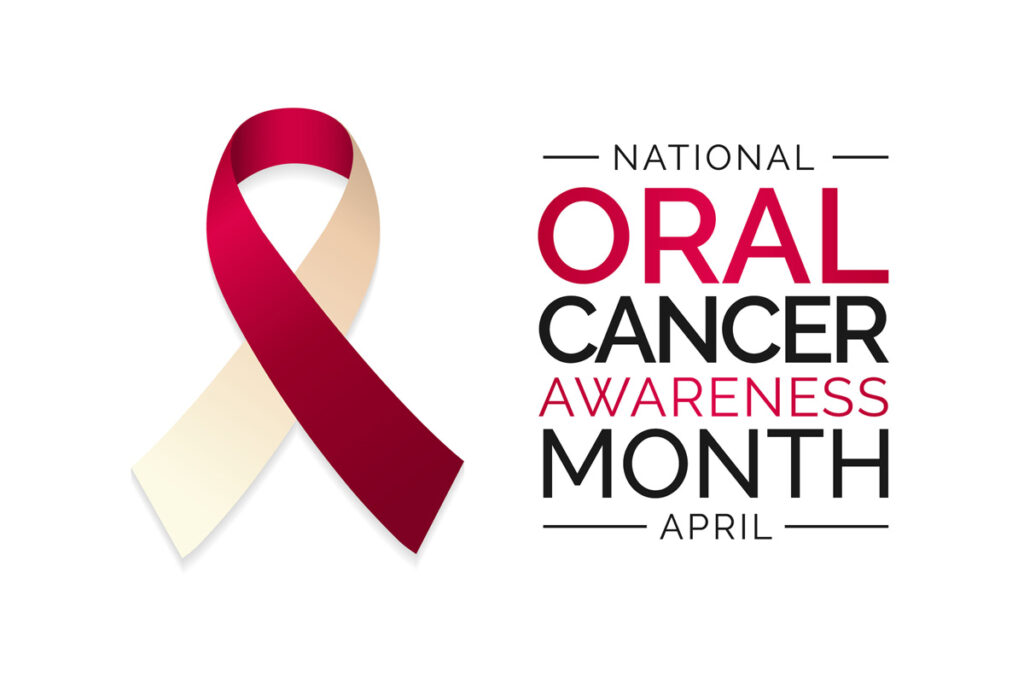In April, we raise awareness of oral cancer. Regular oral cancer screening is essential because the early discovery of oral cancer significantly improves long-term survival (once every three years in adults over 20 and yearly in adults over 40). Every dentist appointment is a chance to be checked out.
In 2022, there were around 54,000 new cases of the oral cavity and oropharyngeal cancer and 11,230 deaths, predicted by the American Cancer Society. The sixth most frequent cancer in the world is head and neck cancer. It usually affects adults over the age of 60. Oral cancer affects your lips, the tip of your tongue, and the roof and floor of your mouth. A growth or sore in the mouth that does not go away might indicate oral cancer. Each year, over 50,000 Americans, 70% of whom are men, get oral cancer.
What Exactly Is Oral Cancer?
The general name for cancer that affects the inside of your mouth is oral cancer (mouth cancer). The symptoms of oral cancer, such as white patches or bleeding sores, might resemble typical problems with your lips or mouth. The distinction between a common issue and possible cancer is that these abnormalities do not disappear. If oral cancer is not treated, it can spread from your mouth and throat to other parts of your head and neck. Around 63% of those diagnosed with oral cavity cancer are still alive five years later.
Types of Head and Neck Cancer
- Oral Cavity – Tongue, Gums, Tongue Floor
- Throat or Opharynx – Often associated with Human papillomavirus (HPV) infection
- Salivary Glands
- Lymph Nodes (Lymphoma)
- Bone or Soft tissues (Sarcoma)
Symptoms
One of your body’s most vital early warning systems is your mouth. Patients should be aware of the following warning signs and symptoms between dental appointments and seek treatment from a dentist if they do not get better or go away after two to three weeks:
- A persistent discomfort, soreness, or irritability
- Red or white spots and discomfort, sensitivity, or numbness in the lips or mouth.
- Trouble eating, swallowing, speaking, or moving your jaw or tongue
- Lumps, thickening tissues, rough spots, crusty or eroded areas
- A change in how your teeth fit together when you close your mouth
Keep this two-three-week period in mind when it comes to symptoms, but always call your dentist immediately if you have any urgent concerns.
Causes
- Using smokeless tobacco- The risk of developing cheek, gums, and lip lining cancers is 50 times higher in people who use dip, snuff, or chewing tobacco products.
- Drinking excessive amounts of alcohol- Drinkers are around six times more likely than nondrinkers to develop oral cancer. Combining cigarettes and alcohol further raises your odds.
- A history of cancer in the family.
- Extreme sun exposure, especially at a young age. Ultraviolet radiation from the sun can cause lip cancers.
- HPV (human papillomavirus)- Some HPV strains contribute to the etiology of Oropharyngeal Squamous Cell Carcinoma (OSCC). Most people who engage in sexual activity will eventually get HPV. Growing numbers of commonly healthy men under 50 are developing oral sex-related cancers in their throats and backs of their mouths due to a particular type of this virus. Your risk increases the more people you and your partners have sex with.
- Age- The growth of oral cancers might take years. At age 55, most people discover they have it. Yet, cancers connected to HPV are developing in more young men.
- Gender- Oral cancer is at least twice as common in males than in women. The reason may be that males smoke and drink more frequently than women.
- A bad diet- Research has found a connection between insufficient vegetable and fruit consumption and mouth cancer.
Early identification of oral cancer is crucial because of how rapidly it may spread. Dentists may find early cancer indications during an oral cancer checkup. The examination lasts only a few minutes and is painless. Dentists frequently do the test as part of routine dental exams. During the exam, your dentist or dental hygienist will look for cancer symptoms on your face, neck, lips, and mouth.

Oral Cancer Treatment
The three primary methods of treatment for mouth cancer are as follows:
- Surgery to remove the cancerous cells as well as a small amount of normal tissue or cells to guarantee that the cancer is entirely eradicated.
- Radiotherapy – where radiation beams are focused on the cancerous cells.
- Chemotherapy- in which potent drugs are used to destroy cancerous cells.
Combinations of these treatments are frequently employed. For example, dentists may use radiation after surgery to help prevent cancer from coming back.
In addition to attempting to treat mouth cancer, treatment aims to keep the mouth healthy enough to continue performing critical activities, including speaking, eating, and breathing. Another top priority will be keeping your mouth looking good.
When Should You See a Dentist?
If you live in Thornhill, Ontario and have any symptoms that annoy you and linger longer than two weeks, contact us at SkyRise Dental. We start by looking at less uncommon possibilities for your symptoms, such as an infection.



